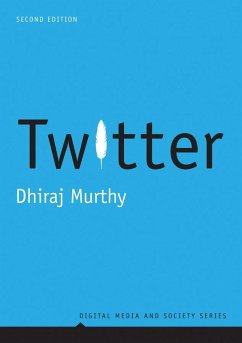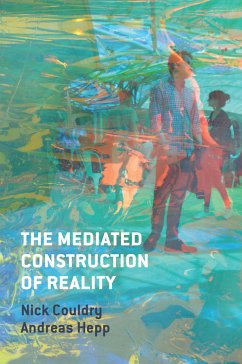
After the Internet (eBook, ePUB)
Versandkostenfrei!
Sofort per Download lieferbar
15,99 €
inkl. MwSt.
Weitere Ausgaben:

PAYBACK Punkte
0 °P sammeln!
In the wake of Edward Snowden's revelations, and concern that the internet has heightened rather than combatted various forms of political and social inequality, it is time we ask: What comes after a broken internet? Ramesh Srinivasan and Adam Fish reimagine the internet from the perspective of grassroots activists and citizens on the margins of political and economic power. They explore how the fragments of the existing internet are being utilised - alongside a range of peoples, places, and laws - to make change possible. From indigenous and non-western communities and activists in Tahrir Squ...
In the wake of Edward Snowden's revelations, and concern that the internet has heightened rather than combatted various forms of political and social inequality, it is time we ask: What comes after a broken internet? Ramesh Srinivasan and Adam Fish reimagine the internet from the perspective of grassroots activists and citizens on the margins of political and economic power. They explore how the fragments of the existing internet are being utilised - alongside a range of peoples, places, and laws - to make change possible. From indigenous and non-western communities and activists in Tahrir Square, to imprisoned hackers and whistleblowers, this book illustrates how post-digital cultures are changing the internet as we know it - from a system which is increasingly centralized, commodified, and "personalized", into something more in line with its original spirit: autonomous, creative, subversive. The book looks past the limitations of the internet, reconceptualizing network technology in relation to principles of justice and equality. Srinivasan and Fish advocate for an internet that blends the local concerns of grassroots communities and activists with the need to achieve scalable change and transformation. Written by two highly respected scholars in the field, this compelling book is essential reading for anyone concerned with the quality and future of the internet.
Dieser Download kann aus rechtlichen Gründen nur mit Rechnungsadresse in A, B, BG, CY, CZ, D, DK, EW, E, FIN, F, GR, HR, H, IRL, I, LT, L, LR, M, NL, PL, P, R, S, SLO, SK ausgeliefert werden.













